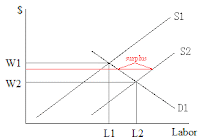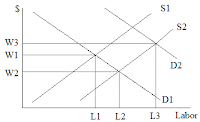Howard Schultz started his own business in 1986. Actually, the first store that Schultz opened was “Il Giornale”, Il Giornale was located in skyscraper in Seattle; it was a café which was totally following Italian-style, there were only served coffee made by traditional ways, such as espresso and whole bean. At the beginning the profit of Il Giornale was not bad; however, in order to meet the market supplies, Schultz thought it was necessary served the American-style also, such as vanilla or hazelnut flavored coffee. In 1987, the founders of Starbucks wanted to sell the company, and Schultz thought it was an opportunity for him. He would like to hold two companies in the same time to expand his concept. After discussion, Schultz and his colleagues decided to buy the company and rename the new organization---Starbucks Corporation.
After taking control of Starbucks, Schultz noticed that there were few consumers knew about espresso or whole bean coffee very well, and there were few Italian–style café in the United States also; therefore, let more consumers know what is espresso or whole bean coffee become very important, because Starbucks need more supplies to push running. In order to let Starbucks has a well-known fame and better profit, Schultz and his colleagues started to pursue an aggressive expansion plan. In 1988, there were 15 stores opened; in1989, the first Starbucks in Portland was opened, and the total number of stores was 50. In the year 1990, which was also the first year of profitability, the total stores were increased to 78, Schultz wanted to control more market in café area very much; however, he preached to himself not to be overconfidence. In 1991, there were 112 stores, and people could find Starbucks in the most of mega polis in the United States. In 1993, the first store which was not located in the U.S. was opened in Tokyo, Japan. Up to now, Starbucks is spreading with an amazing speed in the entire world. There are 5 stores are opened every day in the world, people even can see one store from another. The total profit in 2005 was $6.369 billion, compared with the first year’s $4.5 million in 1990, the profit increased almost 1415 times in the past 15 years.








